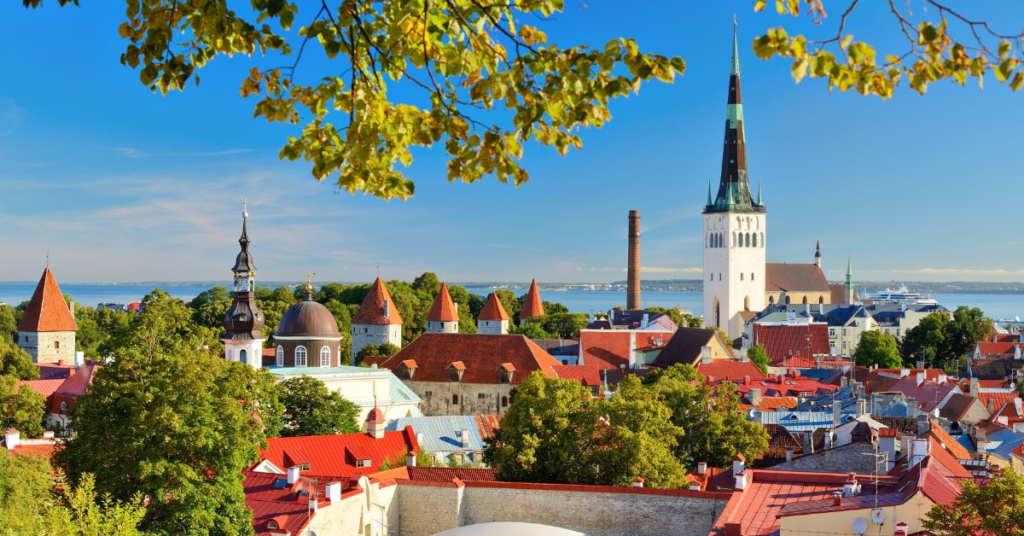As remote work continues to gain traction across the globe, the concept of becoming a digital nomad has become more accessible than ever. The European Union has recognized this shift in work culture, and several EU countries have introduced specialized digital nomad visas. These visas allow remote workers to live in and experience a new country without needing to secure traditional employment locally.
In this article, we’ll dive into the best six EU-based digital nomad visas of all time, their requirements, and what makes each country an attractive option for remote workers. We’ll also provide useful statistics, numbers, and practical tips to help you choose the right destination for your nomadic lifestyle.
1. Estonia’s Digital Nomad Visa

Estonia was one of the first countries in the world to offer a digital nomad visa, launched in August 2020. Estonia’s progressive approach to digital technology (it was also the first country to implement e-residency in 2014) made it a natural pioneer for welcoming digital nomads.
Key Details:
- Eligibility: Applicants must prove they have an active employment contract with a company outside Estonia or demonstrate that they run a location-independent business. You must earn a minimum of €3,504 per month for the last six months before applying.
- Visa Duration: Up to 12 months.
- Cost: €100 for the long-term visa.
Statistics: As of 2022, Estonia’s digital nomad visa attracted over 1,000 applicants. The country’s e-residency program has been used by more than 86,000 people, showing Estonia’s appeal for digital professionals.
Why Choose Estonia: Estonia offers a highly digitalized society with fast internet, affordable living costs (an average monthly rent in Tallinn is around €500), and a strong community of international entrepreneurs.
2. Portugal’s Digital Nomad Visa

Portugal, known for its scenic coastline, mild climate, and friendly locals, has become a hotspot for digital nomads. In October 2022, Portugal introduced its digital nomad visa, officially called the “temporary stay visa for remote work.”
Key Details:
- Eligibility: Applicants must show proof of remote work and have an income of at least €2,820 per month, which is four times the Portuguese minimum wage.
- Visa Duration: The visa is issued for one year and can be renewed for up to five years.
- Cost: Application fees range from €90 to €180, depending on where you apply.
Statistics: Lisbon was ranked the 2nd best city for digital nomads in 2021, with around 12% of remote workers in the city planning to stay permanently. Portugal itself attracts millions of tourists annually, and its expat population continues to grow.
Why Choose Portugal: Portugal combines a high quality of life with relatively low living costs (you can live comfortably on €1,500 per month outside Lisbon), great weather, and excellent co-working spaces. The country also has a strong digital nomad community, especially in Lisbon and Porto.
Read more details: Portugal Nomad Visa: Who is Eligible and How to Apply
3. Croatia’s Digital Nomad Visa

Croatia’s digital nomad visa, introduced in January 2021, aims to attract remote workers to its Adriatic coast and historic cities. It’s a temporary residence permit designed specifically for non-EU digital nomads.
Key Details:
- Eligibility: Applicants must be employed by or own a company outside of Croatia and earn a minimum of HRK 16,907.50 (€2,230) per month.
- Visa Duration: Up to one year with no possibility of extension (however, you can reapply after six months).
- Cost: €100 for the application fee.
Statistics: In its first year, Croatia received over 300 applications for its digital nomad visa, with more than 100 being approved. In 2022, Split and Dubrovnik became the top Croatian cities for digital nomads, with co-working spaces multiplying to meet the demand.
Why Choose Croatia: Croatia offers stunning natural beauty, a relatively low cost of living (about €1,000-€1,500 per month in major cities), and a relaxed lifestyle. The Adriatic coastline is ideal for those who love the sea, while the country’s cultural heritage provides endless exploration opportunities.
4. Spain’s Digital Nomad Visa

Spain launched its digital nomad visa in early 2023 as part of its Startup Law to attract foreign talent. This visa is ideal for those wanting to enjoy Spain’s rich culture, amazing food, and sunny weather while working remotely.
Key Details:
- Eligibility: Applicants must prove an income that is at least 200% of the Spanish minimum wage, which comes to approximately €2,334 per month. They also need to show proof of working remotely for a non-Spanish company or operating a business remotely.
- Visa Duration: The visa is valid for one year, and it can be extended for up to five years.
- Cost: €75 for the application process.
Statistics: According to reports, over 80,000 digital nomads are estimated to work from Spain, with cities like Barcelona and Madrid being among the most popular destinations. The rise in co-working spaces in these cities has also seen a 20% increase in the last five years.
Why Choose Spain: Spain is a paradise for remote workers who want to enjoy a Mediterranean lifestyle. The cost of living is lower than in other Western European countries (around €1,500-€2,000 per month), and the country offers an unbeatable mix of history, culture, and natural beauty.
5. Greece’s Digital Nomad Visa

Greece introduced its digital nomad visa in September 2021 to capitalize on its appeal as a destination with rich history, beautiful landscapes, and a relaxed lifestyle. Greece aims to become a hub for remote workers who want to live in one of Europe’s most sun-soaked nations.
Key Details:
- Eligibility: Applicants need proof of employment or self-employment outside Greece and must earn at least €3,500 per month, after taxes.
- Visa Duration: The visa is valid for 12 months, with the possibility of renewal.
- Cost: Application fees vary, but typically range from €75 to €150.
Statistics: In 2021, Athens was ranked as one of the best cities for remote workers due to its affordability, with over 2,000 digital nomads applying for the visa since its introduction. More than 6 million tourists visited Greece in the same year, making it a popular destination for remote workers.
Why Choose Greece: Greece offers one of the lowest costs of living in Western Europe (you can live comfortably for around €1,200 per month in Athens). Additionally, the country’s islands, ancient ruins, and sunny weather make it an attractive destination for digital nomads.
Keep reading : Greece Digital Nomad Visa: Work and Live in Greece
6. Malta’s Nomad Residence Permit

Malta introduced its Nomad Residence Permit in 2021, allowing non-EU digital nomads to reside in the country while continuing their remote work. Known for its historical landmarks, stunning coastlines, and mild climate, Malta is becoming a prime destination for remote workers.
Key Details:
- Eligibility: Applicants must be employed by a company registered outside Malta, have a freelance business, or be a shareholder of a foreign company. The required monthly income is €2,700.
- Visa Duration: One year, with the possibility of renewal.
- Cost: €300 for the application.
Statistics: Malta welcomed over 800 digital nomads in the first year of its program. The country’s digital economy has grown significantly, with co-working spaces and start-ups booming. The Maltese government reported a 10% increase in remote workers over the last year.
Why Choose Malta: Malta offers a high standard of living, English as one of its official languages, and a vibrant expat community. The cost of living is slightly higher than in other EU countries (expect to spend around €2,000 per month), but the island’s charm and location in the Mediterranean make it worth it.
Tips and Advice for Choosing the Best Digital Nomad Visa
- Consider the Cost of Living: Each country offers different living costs, and it’s important to research how much you’ll spend monthly. For instance, Portugal and Croatia offer lower living costs compared to countries like Spain and Malta.
- Check Your Eligibility: Make sure you meet the income requirements for the visa. Many of the EU digital nomad visas have strict income thresholds, and you’ll need to provide documentation to prove your earnings.
- Internet Connectivity: As a digital nomad, reliable internet is essential. Countries like Estonia and Portugal are known for excellent internet infrastructure, while more remote areas in Greece or Croatia may have slower connections.
- Healthcare: Many digital nomad visas require you to have private health insurance. Be sure to research healthcare costs and options in the country you choose.
- Community and Networking: Look for countries with established digital nomad communities. Cities like Lisbon, Barcelona, and Athens have large expat and nomad networks, offering co-working spaces, meetups, and networking opportunities.
- Visa Duration and Extensions: If you’re looking for a long-term base, check the visa duration and renewal possibilities. Countries like Spain and Portugal offer visas that can be extended for several years, while Croatia’s visa is only valid for one year.
Read also : 10 Things to Know Before Traveling to Jordan








